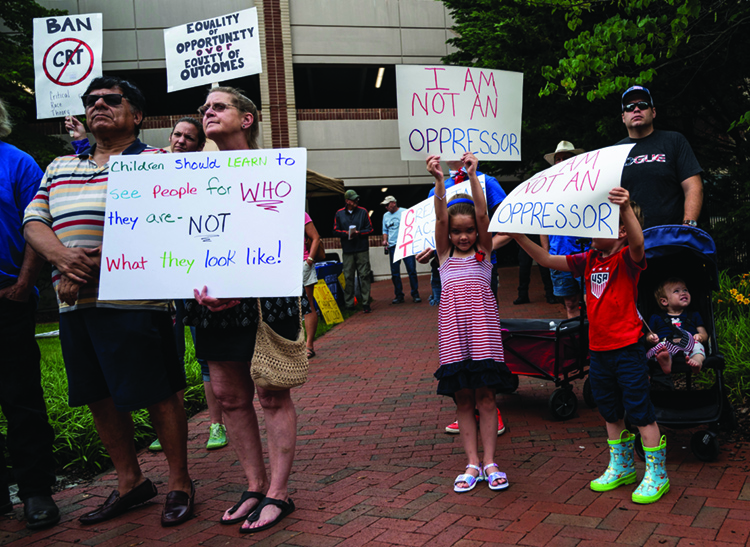First Amendment
Public-school students don’t have ‘supercharged right’ to be taught critical race theory, 8th Circuit says
Critical race theory protesters in Leesburg, Virginia (Getty Images).
Students challenging a ban on the teaching of critical race theory in Arkansas public schools are unlikely to succeed in their First Amendment challenge to the law, a federal appeals court ruled Wednesday.
The St. Louis-based 8th U.S. Circuit Court of Appeals allowed enforcement of the law in a July 16 opinion by Judge L. Steven Grasz, an appointee of President Donald Trump.
Critical race theory focuses on how racism and inequality are embedded within society. Several Republican-led states ban critical race theory and restrict how race is taught in public schools, the Associated Press reports in its story on the decision.
The right to receive information from a private speaker “cannot be used to require the government to provide a message it no longer is willing to say,” Grasz wrote. “The government is ultimately accountable to its citizens for its speech through elections, so the government may change the message it promotes in response to the political process.”
Students don’t have “a supercharged right to receive information in public schools” that changes those principles, Grasz said.
The appeals court lifted a May 2024 preliminary injunction granted to the students by U.S. District Judge Lee Rudofsky that prevented enforcement of the ban.
Other publications noting or covering the decision, in addition to the Associated Press, include the Arkansas Advocate, the Volokh Conspiracy and How Appealing.
“With its ruling today,” Arkansas Attorney General Tim Griffin said in a press release, “the 8th Circuit continues to ensure that the responsibility of setting curriculum is in the hands of democratically elected officials who, by nature, are responsive to voters.”
A lawyer for the plaintiffs expressed disappointment in the ruling but said the impact is limited because the state committed to a narrow reading of the law during the litigation, according to the Arkansas Advocate.
The case is Walls v. Sanders.
Write a letter to the editor, share a story tip or update, or report an error.
